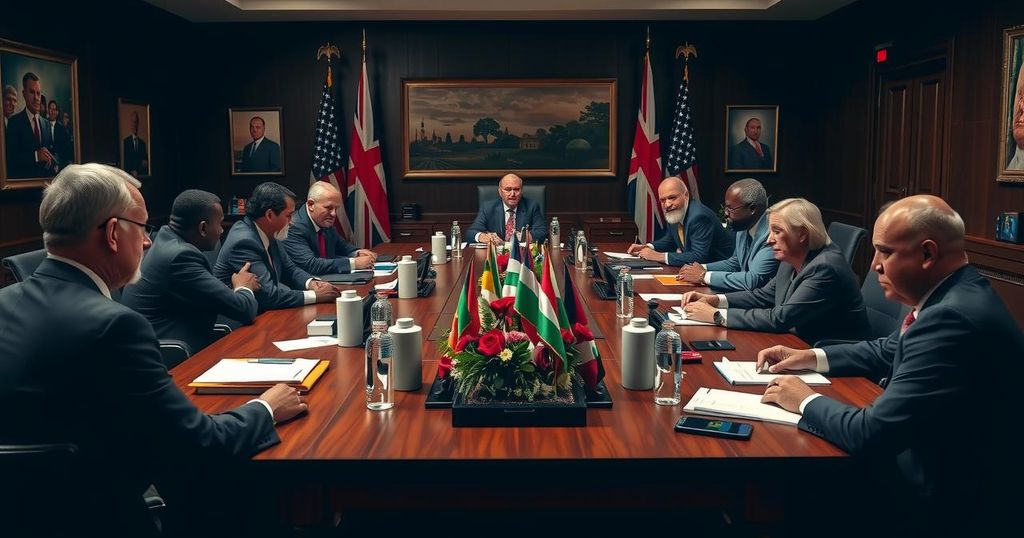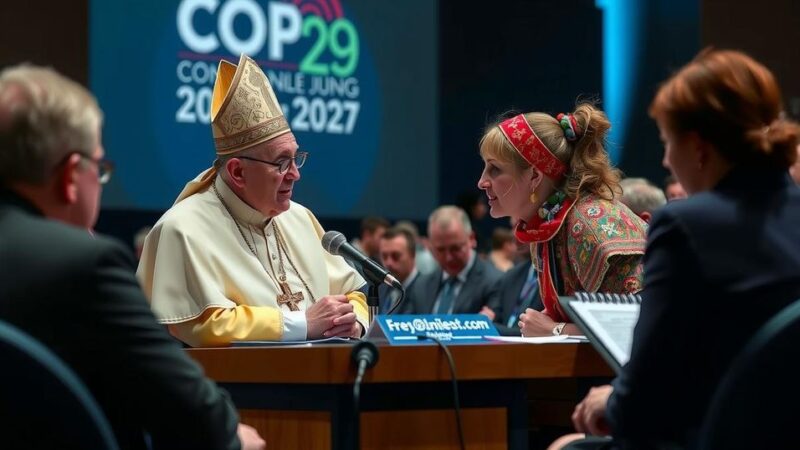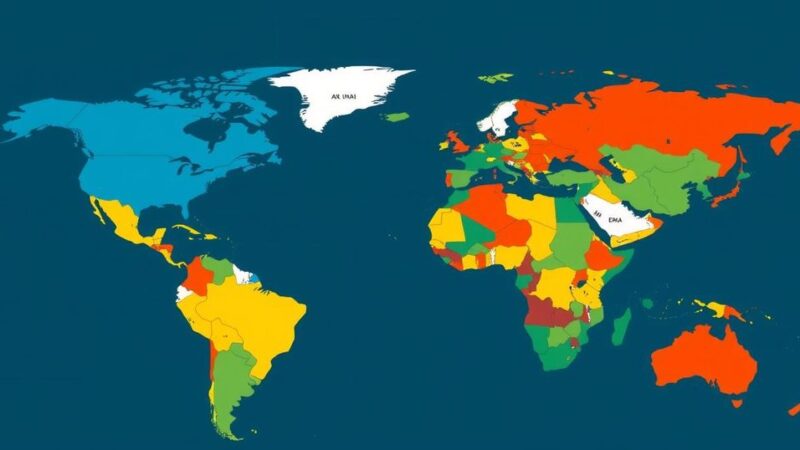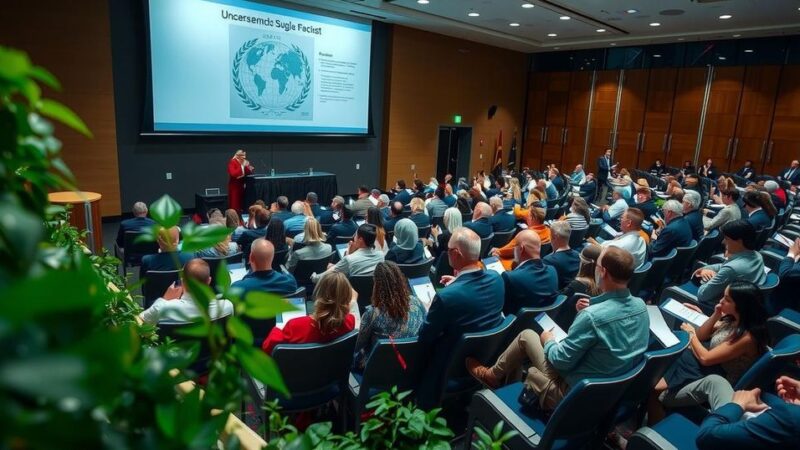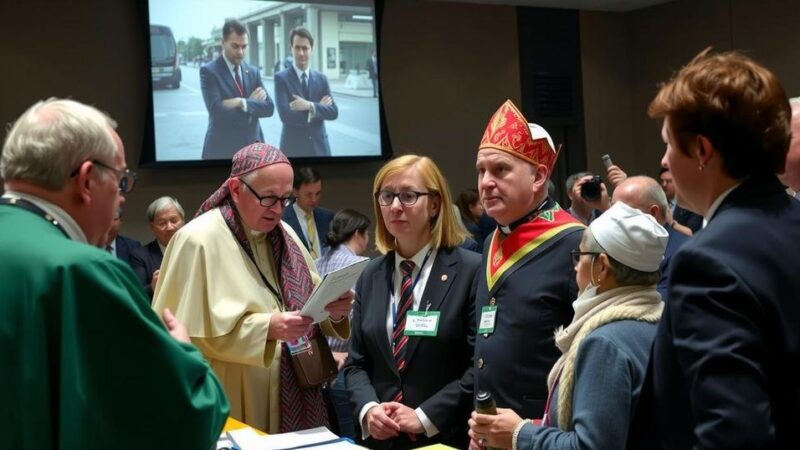The Commonwealth Heads of Government Meeting is currently taking place in Samoa, focusing on climate change and reparations for transatlantic slavery. Leaders from 56 member countries are addressing rising sea levels threatening small island nations and discussing the ongoing call for reparations, especially from CARICOM. British Prime Minister Keir Starmer has indicated an openness to dialogue on reparations, while the summit aims to promote ocean protection and highlight the effects of climate change.
The Commonwealth Heads of Government Meeting (CHOGM) is currently taking place in Samoa, where leaders from 56 countries, including representatives of former territories of the British Empire, are convening to address pressing global issues such as climate change and the demand for reparations stemming from Britain’s historical involvement in the transatlantic slave trade. This gathering, which initiated earlier in the week, includes discussions among foreign ministers as well. Leaders, particularly from small island nations within the Commonwealth, are expressing grave concerns about the imminent and severe threats posed by climate change, particularly rising sea levels. United Nations Secretary-General António Guterres has highlighted that ocean temperatures in the Pacific Islands are increasing at a rate three times faster than the global average, placing these regions at significant risk. Australian Foreign Minister Penny Wong emphasized that the existential threat of climate change is the foremost national security and economic challenge facing countries in the Pacific. Furthermore, representatives from various African nations, including Zambia, are alerting fellow leaders to the pressing issues climate change poses, particularly regarding food security. In an effort to raise awareness, King Charles will be briefed on the impacts of rising sea levels during his visit, while attendees at the summit are expected to draft a declaration aimed at ocean protection—a critical agenda item. On another note, the summit serves as a platform for discussing the contentious issue of reparations for the historical injustices of transatlantic slavery. A significant push has emerged from the Caribbean Community (CARICOM) and more recently, the African Union, advocating for reparations from former colonial powers such as the United Kingdom, France, and Portugal. While British Prime Minister Keir Starmer has indicated that the topic of reparations will not be directly addressed in the summit proceedings, he remains open to dialogue with nations wishing to pursue the matter. CARICOM has established a commission to pursue reparations, reflecting the sentiment of many member nations that historical injustices have resulted in enduring racial inequalities. Kingsley Abbott, director of the University of London’s Institute of Commonwealth Studies, underscored the importance of dialogue regarding reparations at CHOGM, stressing the obligation to listen to the concerns of those affected by historical atrocities. The grim history of the transatlantic slave trade saw the forced transportation of over 12.5 million Africans by European traders from the 15th to the 19th centuries, resulting in immense suffering and exploitation. Decisions made at this summit may have far-reaching implications, as nations seek to navigate the complexities of both environmental and social justice issues in today’s global climate.
The Commonwealth Heads of Government Meeting (CHOGM) is a biennial meeting of Commonwealth leaders who convene to discuss issues of mutual interest, including economic development, democracy, and social justice. The current CHOGM in Samoa highlights two significant contemporary issues: the pressing effects of climate change and historical reparations for slavery. Many Commonwealth states are especially vulnerable to climate change, with low-lying island nations facing the existential threat of rising sea levels. Concurrently, the legacy of slavery continues to create social inequalities, prompting calls for reparations from countries like the United Kingdom, which has historical ties to the transatlantic slave trade. The focus on these topics underscores the evolving dialogue within the Commonwealth regarding accountability for past injustices and the urgent need for collective action on climate change.
The Commonwealth Heads of Government Meeting in Samoa serves as a critical forum for addressing significant global challenges such as climate change and the call for reparations connected to the historical transatlantic slave trade. With a strong focus on ecological preservation and acknowledging historical responsibilities, leaders are presented with a pivotal opportunity to engage in meaningful dialogue and potentially shape a collaborative approach to these pressing issues. The responses and declarations resulting from this summit may not only reflect the collective will of the Commonwealth nations but also influence the broader international discourse on climate action and social justice.
Original Source: www.swissinfo.ch
